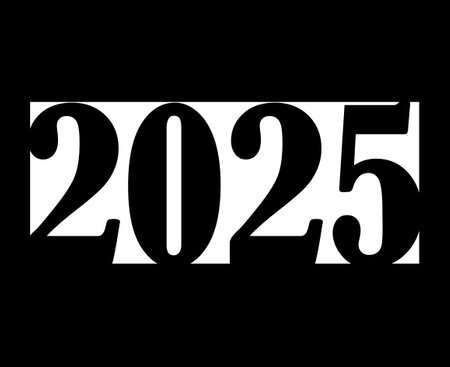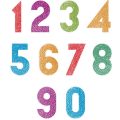Introduction: Charting Your Career Path with Tarot
In the dynamic landscape of UK careers, planning for professional growth can feel both exciting and daunting. While spreadsheets and annual reviews remain staples in career development, an increasing number of people are turning to more unconventional tools for guidance. Tarot, often associated with personal introspection and traditional mysticism, is emerging as a novel way to gain fresh insights into one’s professional journey. Blending centuries-old symbolism with modern career aspirations, tarot offers a reflective space to consider opportunities, challenges, and the subtle currents shaping your year ahead. In this article, we will explore how annual career forecasts using tarot can provide a unique perspective that complements practical planning, making them particularly relevant for those navigating the evolving workplace culture in the UK. Whether you’re considering a new role, aiming for a promotion, or seeking greater fulfilment in your work life, tarot can serve as a creative tool for charting your course with confidence and clarity.
2. Selecting Your Spread: Laying the Foundations for Work and Ambition
Choosing the right tarot spread is fundamental when seeking meaningful career insights, particularly if you wish to focus on practical, grounded guidance that resonates with British workplace values. Traditional tarot spreads can be adapted to reflect local professional priorities such as resilience, teamwork, and a balanced approach to ambition. Below, we explore several spreads suited for annual career forecasting, each offering a structure that aligns with UK work culture.
The Classic Three-Card Spread: Clarity at a Glance
The three-card spread remains a favourite among both newcomers and experienced readers for its simplicity and directness. For career readings, this spread typically covers:
| Position | Interpretation in Career Context |
|---|---|
| Past | Review of previous achievements or setbacks in your role |
| Present | Current workplace environment or challenges |
| Future | Likely developments in your professional journey |
The Celtic Cross: In-Depth Analysis for the Ambitious Professional
The Celtic Cross is well-suited for those who value thorough analysis—a trait often admired in British business culture. With ten positions, it provides nuanced insight into complex work scenarios and long-term planning. This spread can be tailored to address specific goals, team dynamics, and external influences such as industry trends or organisational change.
The Year Wheel: Mapping Monthly Milestones
For annual career forecasts, the Year Wheel spread offers structured foresight, mirroring the cyclical nature of many UK businesses and industries. Assigning one card to each month allows you to anticipate challenges and opportunities, plan performance reviews, or align with key events such as end-of-year appraisals.
| Month | Focus Area Example |
|---|---|
| January | Setting intentions; new projects |
| April | Appraisal preparation; feedback integration |
| October | Reflecting on achievements; preparing for transitions |
Custom Spreads Reflecting British Workplace Culture
Bespoke spreads can be especially helpful in reflecting specific workplace norms found across the UK. For instance, a “Team Dynamics” spread may address collaboration and leadership styles—both highly valued traits locally. Alternatively, a “Work-Life Balance” layout considers stress management and personal wellbeing alongside career ambition, reflecting the growing emphasis on holistic employee support within British companies.
Summary Table: Spreads at a Glance
| Spread Name | Main Purpose |
|---|---|
| Three-Card Spread | Straightforward career overview |
| Celtic Cross | In-depth problem solving and planning |
| Year Wheel | Monthly progression tracking |
| Bespoke (e.g., Team Dynamics) | Cultural alignment and interpersonal insights |
Selecting Mindfully for Maximum Insight
Selecting a tarot spread is about more than tradition—it’s about aligning with your personal ambitions and cultural context. By choosing layouts that echo British workplace values—clarity, thoroughness, teamwork—you lay solid foundations for actionable annual career forecasts that resonate throughout your professional year ahead.

3. Key Tarot Cards and Their Professional Meanings
When interpreting annual career forecasts with tarot, recognising the significance of both major and minor arcana is crucial—especially when tailoring insights for those working in the UK’s diverse professional landscape. The cards can offer targeted guidance, helping to illuminate opportunities and potential challenges in the year ahead.
Major Arcana: Defining Professional Turning Points
The Magician
This card often signals new beginnings or opportunities to use your skills resourcefully. For example, a London-based tech entrepreneur drawing The Magician might be encouraged to launch a start-up or innovate within their field.
The Hierophant
Associated with tradition and institutional roles, The Hierophant could suggest stability or advancement within established organisations. For NHS staff or educators, this card may indicate promotion prospects or the chance to influence policy.
The Tower
While daunting, The Tower hints at upheaval that clears the way for growth. In sectors facing rapid change—such as retail or hospitality—this card can reflect necessary restructuring or adapting to new market realities post-Brexit.
Minor Arcana: Everyday Career Dynamics
Pentacles (Coins)
Pentacles are closely linked to material matters and work life. Drawing the Eight of Pentacles might signal skill development or apprenticeships—a relevant message for tradespeople or those considering vocational training under schemes like the UK’s Apprenticeship Levy.
Swords
Cards from the Swords suit often relate to communication and decision-making. For example, the Two of Swords can highlight tough choices for solicitors weighing legal strategies or HR professionals managing workplace disputes.
Cups and Wands
Cups focus on relationships and emotional fulfilment at work; drawing the Three of Cups could signal fruitful collaborations—ideal for project managers or marketing teams. Meanwhile, Wands signify ambition and growth: the Ace of Wands may forecast a fresh business idea taking root, particularly relevant for self-employed consultants navigating the gig economy in cities like Manchester or Edinburgh.
Integrating Tarot with UK Workplace Realities
Interpreting these cards through a distinctly British lens means considering local trends—be it flexible working arrangements, public sector reforms, or the ongoing impact of economic changes. By connecting each card’s message to specific professions and scenarios, tarot readings become practical guides, supporting informed decisions throughout your professional year ahead.
4. Practical Tarot Session: Step-by-Step Annual Career Reading
If you’re keen to forecast your professional year ahead with tarot, here’s a practical guide that fits neatly into everyday British life. Whether you’re eyeing a promotion, contemplating a career change, or simply want clarity about your work-life balance, this simple step-by-step tarot session will help you get started. Grab yourself a cuppa, settle in at your kitchen table, and let’s begin.
Step 1: Set the Scene
Choose a quiet space—perhaps after Sunday roast or during a peaceful evening. Make sure you have your favourite tarot deck and a notebook handy for jotting down insights.
Step 2: Shuffle and Focus
Think about your career goals for the coming year. As you shuffle the cards, focus on your intentions—whether it’s landing that job in Manchester or achieving better work-life balance in London.
Step 3: The Annual Spread
Lay out twelve cards in a circle or line—each one representing a month of the year ahead. This gives you a month-by-month overview, much like planning out your calendar at the start of January.
Example Table: Month-by-Month Career Reading
| Month | Card Drawn | Key Theme | British Context Example |
|---|---|---|---|
| January | The Magician | New Opportunities | Kicking off new projects post-Christmas break |
| February | The Chariot | Determination | Pushing through winter blues at work |
| March | The Lovers | Collaboration | Teamwork on spring initiatives |
Step 4: Interpret Each Card
For each card, reflect on how its message relates to traditional workplace experiences in the UK. For example, drawing “The Tower” in April might suggest surprise changes—think restructuring announcements just before the Easter holidays.
Step 5: Look for Patterns and Trends
Notice if similar themes repeat (such as multiple cards suggesting leadership). This could hint at opportunities for stepping up at work—perhaps even being tapped to organise the office Macmillan coffee morning.
Step 6: Summarise Your Forecast
Write down key takeaways from your reading. Are there months that look especially promising? Times when it might be wise to keep your head down and carry on? This overview can act as your personal career roadmap—like marking important dates on your family calendar.
A Final Thought for Your Year Ahead
Remember, tarot is not about certainties but guidance. Treat your annual career reading as a thoughtful companion alongside real-world planning—helpful whether you’re seeking that elusive pay rise or considering retraining after redundancy.
5. Deciphering Insights: Applying Tarot Guidance to Your UK Professional Journey
Tarot readings, when approached thoughtfully, can offer a unique lens through which to view your career prospects for the coming year. However, translating mystical insights into practical steps is where the real value lies—especially within the UK’s distinctive professional landscape. Here’s how you can integrate tarot guidance into your career planning, job search, and workplace decision-making processes.
Aligning Tarot Insights with Career Planning
Start by identifying the key themes from your annual tarot spread—such as growth, transformation, or caution. Relate these themes to your current career objectives. For instance, if your reading highlights new beginnings (perhaps via The Fool or Ace cards), consider exploring lateral moves or retraining opportunities that are common in the UK’s dynamic job market. Use these insights as prompts for setting tangible goals on your professional development plan (PDP), a familiar tool in many British workplaces.
Practical Job Hunting Strategies
When seeking new roles, let tarot predictions guide your focus. If cards suggest collaboration and community (like the Three of Pentacles), prioritise networking—attend industry meet-ups or engage with LinkedIn groups popular in the UK, such as sector-specific forums or alumni associations. Should your reading emphasise patience or perseverance (for example, The Hanged Man), it may be wise to avoid impulsive job changes and instead invest time refining your CV or upskilling through short courses widely available through platforms like FutureLearn or Open University.
Navigating Workplace Decisions
If your annual forecast hints at challenges or conflict (Five of Wands, perhaps), use this as an impetus to brush up on conflict resolution skills and familiarise yourself with UK workplace rights outlined by ACAS or Gov.uk. Conversely, if positive cards like The Sun or Six of Wands appear, be proactive about seeking recognition for achievements—consider nominating yourself for internal awards or volunteering for visible projects within your company.
Integrating Tarot with Local Resources
Remember to complement tarot advice with practical resources unique to the UK context: tap into mentorship schemes supported by professional bodies such as CIPD, RICS, or Law Society; make use of National Careers Service guidance; and keep abreast of employment trends via organisations like the Office for National Statistics (ONS). In essence, treat tarot as one perspective among many—melding intuition with evidence-based action to craft a resilient and fulfilling career path in Britain’s ever-evolving world of work.
6. Common Mistakes and Ethical Considerations
When using tarot for annual career forecasts, UK professionals can easily fall prey to a handful of common mistakes that may undermine the process or lead to misguided decisions. It’s worth approaching tarot as a reflective tool rather than a definitive oracle. Below, we’ll explore potential pitfalls and the ethical boundaries you should respect when employing tarot in your professional journey.
Over-Reliance on Tarot Readings
One frequent mistake is placing excessive trust in the cards’ messages, allowing them to dictate every career move. While tarot can provide insight, it should not substitute for critical thinking, evidence-based planning, or professional advice. Relying solely on tarot could result in missed opportunities or ill-advised decisions, especially in the competitive UK job market.
Misinterpretation and Confirmation Bias
Another pitfall lies in misreading the symbolism or interpreting cards to fit preconceived notions—a phenomenon known as confirmation bias. The temptation to see what one hopes for, rather than what is genuinely suggested by the spread, can lead to self-deception. For those new to tarot or without guidance from an experienced reader, this risk is heightened.
Ethical Boundaries in Self-Guidance
It’s crucial to maintain clear ethical boundaries when reading tarot for yourself or others. Tarot should never be used to make decisions that could have legal, financial, or health repercussions without consulting qualified professionals. In line with UK standards of professional conduct, practitioners must avoid promising guaranteed outcomes or manipulating clients’ emotions for personal gain.
Cultural Sensitivity and Respect
Tarot has deep roots in various traditions; using it respectfully means acknowledging its history and avoiding cultural appropriation. For British professionals, adopting an open-minded yet grounded approach fosters inclusivity and authenticity—values central to modern workplaces across the UK.
Balancing Intuition with Practicality
Ultimately, integrating tarot into your annual career planning requires balance. Use the insights as prompts for reflection, not replacements for action. Pair intuitive guidance with practical steps—such as upskilling, networking, and seeking mentorship—to ensure your professional year ahead is both inspired and achievable.


